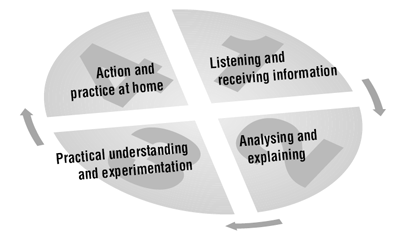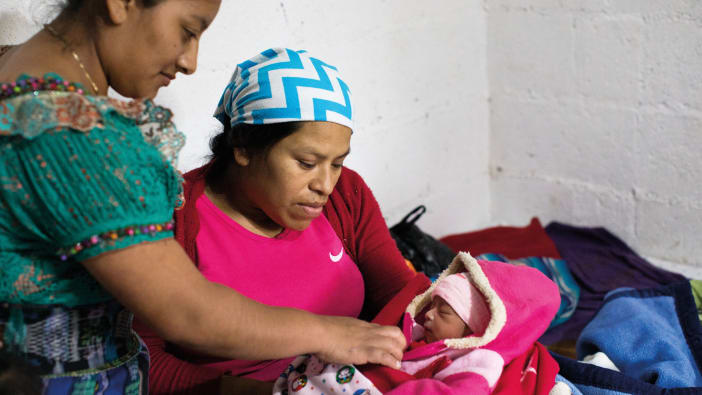First quarter
Listening and receiving information The patient, accompanied by a relative, visits a doctor. The patient complains of aches and fevers. The patient’s relative adds that this could be caused by sorcery. As for the doctor, he thinks that it is not a matter of sorcery – that it is rather a question of malaria. But to be sure of this, he asks the patient to go to the medical laboratory to have a blood test carried out.
Second quarter
Analysing and explaining The blood test has confirmed malaria! The doctor explains to the patient and his relative, with the support of visual aids, the causes of the disease, the symptoms, risks and how to prevent it. Only then will the doctor write a prescription.
Third quarter
Practical understanding and experimentation To check the understanding of the patient, the doctor can then, in a friendly way, ask a few questions such as:
- Why do you have malaria?
- What must you do so that the people in the village do not get malaria?
- What are the common signs which suggest malaria?
- How many tablets must you take each day?
- What are the side effects of the medicine you have been prescribed?
Fourth quarter
Action and practice at home Having obtained appropriate treatment for the disease, will the patient and his relative put into practice what they have learnt from the doctor?
In order to avoid misunderstandings, we recommend that health workers communicate using the local language. Our role plays discourage people from treating themselves without medical advice. You might like to discuss which stages or quarters are often ignored in the present health care system. We are convinced that if all doctors and health staff took the time to respect all four stages of learning, great steps would be made in disease control.
Abel Gousseine Projects Co-ordinator of the NGO Trainers for Development BP 1165 Brazzaville – Congo Fax: + 242 81-56-97 E-mail: [email protected]










